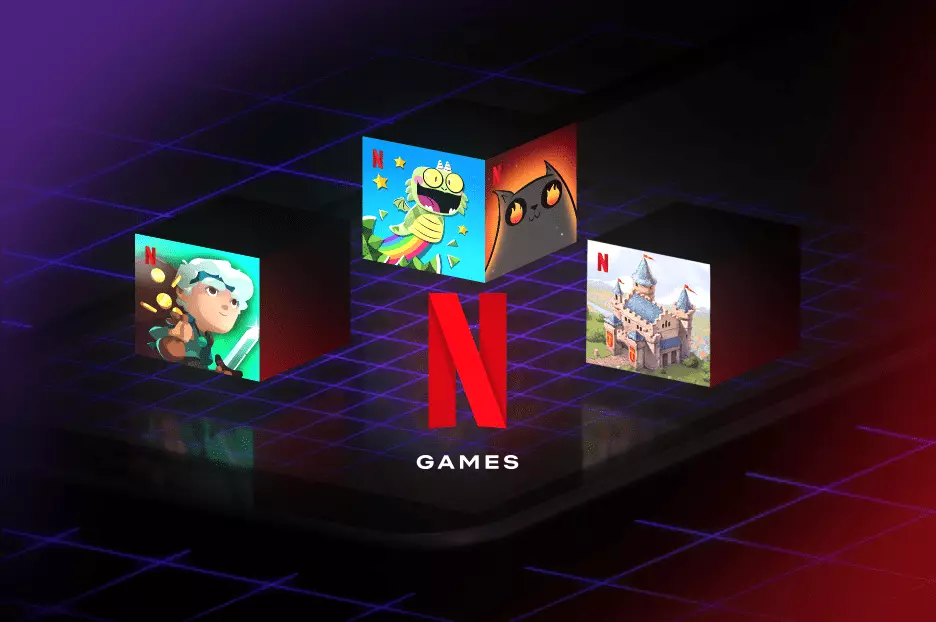When Netflix Games first announced its ambition to incorporate generative AI into game development, it appeared to be a bold move towards the future. The promotion of Mike Verdu to vice president signalled a commitment to harnessing this nascent technology to redefine the gaming experience. With Verdu’s effusive LinkedIn post promising a new era of innovation akin to the gaming renaissance of the 90s, excitement in the industry reached a new high. However, only five months later, Verdu’s departure from the position raises crucial questions about the viability of such technological aspirations. Was Netflix’s embrace of generative AI overly optimistic, or perhaps even misguided?
The Enthusiasm That Couldn’t Translate into Action
Upon his appointment, Verdu expressed unparalleled optimism regarding generative AI, declaring a “seemingly unlimited potential” for gaming innovations. Yet, his excitement only highlighted the stark absence of tangible outcomes. Despite the ambitious vision he painted, the specifics of how generative AI would practically enhance game development remained conspicuously vague. This lack of clarity, coupled with the larger context of significant layoffs within the company, points to a troubling disconnect between dream and execution. This raises the flag of caution: is enthusiasm enough to pivot an entire industry, or is it merely a fleeting sentiment?
Significance of Leadership in Navigating Change
Verdu’s pivotal role as spearhead of Netflix’s gaming initiative meant his departure could have far-reaching repercussions. Notably, Netflix has yet to announce a successor or pivot strategy in the wake of his exit. This absence of leadership fosters a concerning vacuum at a critical juncture, where decisions about the future of Netflix Games must be made. Without a clear vision or direction, the initiative risks stagnation, leaving it in a precarious position. The generative AI focus, once touted as a cornerstone, now appears to be sidelined, questioning its relevance in the bigger picture of the company’s gaming plans.
Market Realities vs. Visionary Aspirations
Netflix’s gaming ambitions seem to be colliding against harsh market realities. Reports indicate that the most substantial downloads for the Netflix app were attributable to external games like “Grand Theft Auto,” not to anything produced in-house. The reality is stark: despite grand visions of innovation with generative AI, Netflix’s actual impact on the gaming landscape has been modest at best. The company’s own creations, such as “Squid Game: Unleashed,” experienced some recognition but still fell short in significantly affecting subscriber retention. This points to a disconcerting trend: Netflix may be overestimating its influence in the competitive gaming sphere.
The Crossroads of Innovation and Investment
As it stands, Netflix’s gaming division is at a pivotal crossroads. The company must choose between continuing to invest heavily in original titles or seeking a more conservative route through licensing existing games. This dilemma underscores a larger conversation about sustainability in creative industries: how much risk is a company willing to take when the rewards remain uncertain? The prospect of leaning into generative AI certainly offers intriguing possibilities, yet the financial and time investments required to realize such innovation could deter even the most adept organizational structures.
Furthermore, the path toward a generative AI-centered model could be fraught with challenges. Achieving a balance between recognizing consumer interests and pursuing a cutting-edge technological agenda will determine whether Netflix Games can carve out a unique identity or be relegated to a supporting role in a saturated market.
In light of all these considerations, it appears that Netflix might need to recalibrate its vision for gaming. The idealistic promises made in the early days of the generative AI focus now hang in ambiguity, looking less like a bold future and more like an idealistic wish. A clear, practical strategy, along with strong leadership, will be essential to set a course that matches the ever-evolving expectations of users and the gaming community at large. Operating under the weight of lofty aspirations with no foundational support could prove detrimental. As we look toward new horizons in gaming, Netflix should heed these lessons from its trials with generative AI. Only then can it hope to reestablish its footing in this dynamic industry.


Leave a Reply